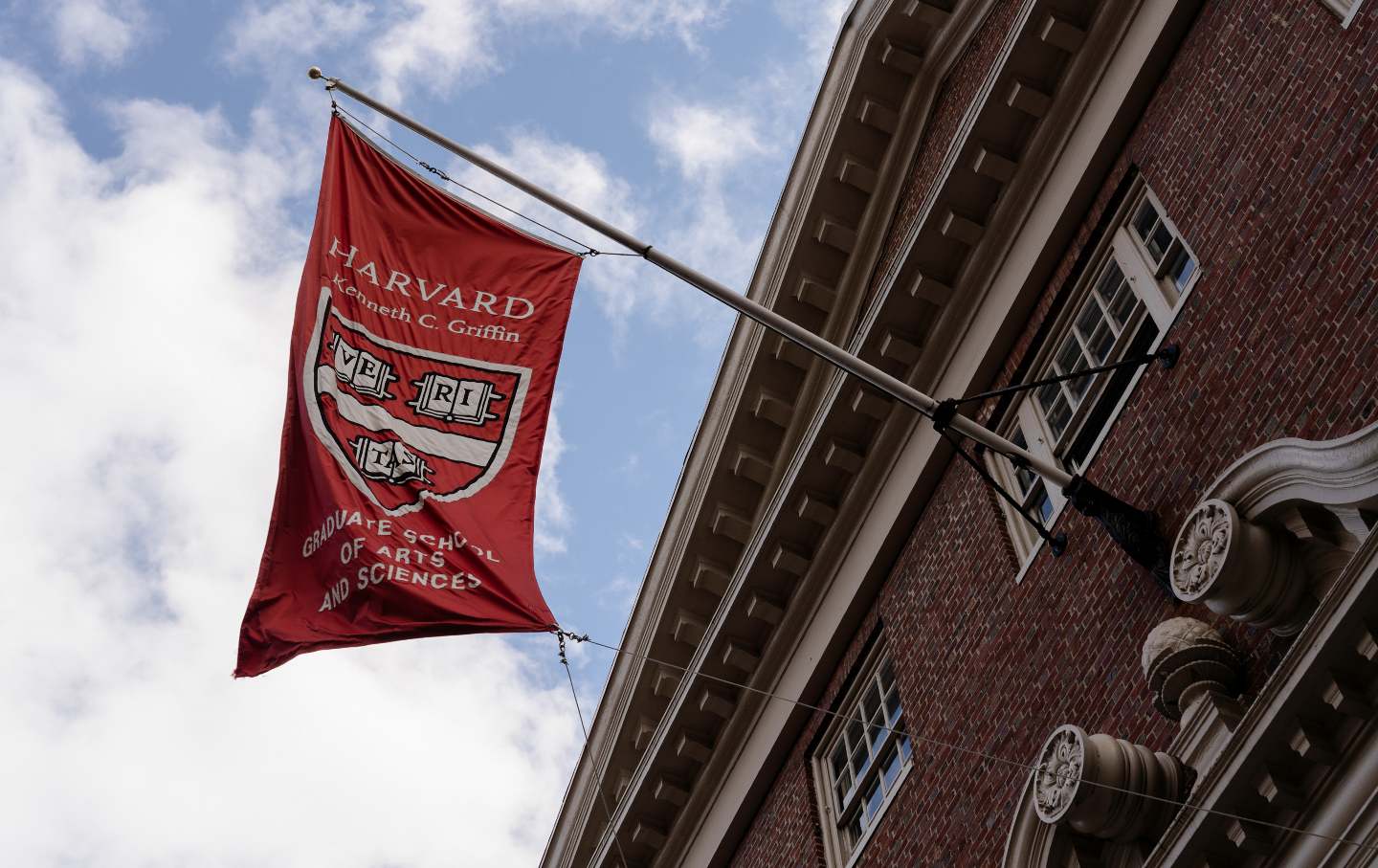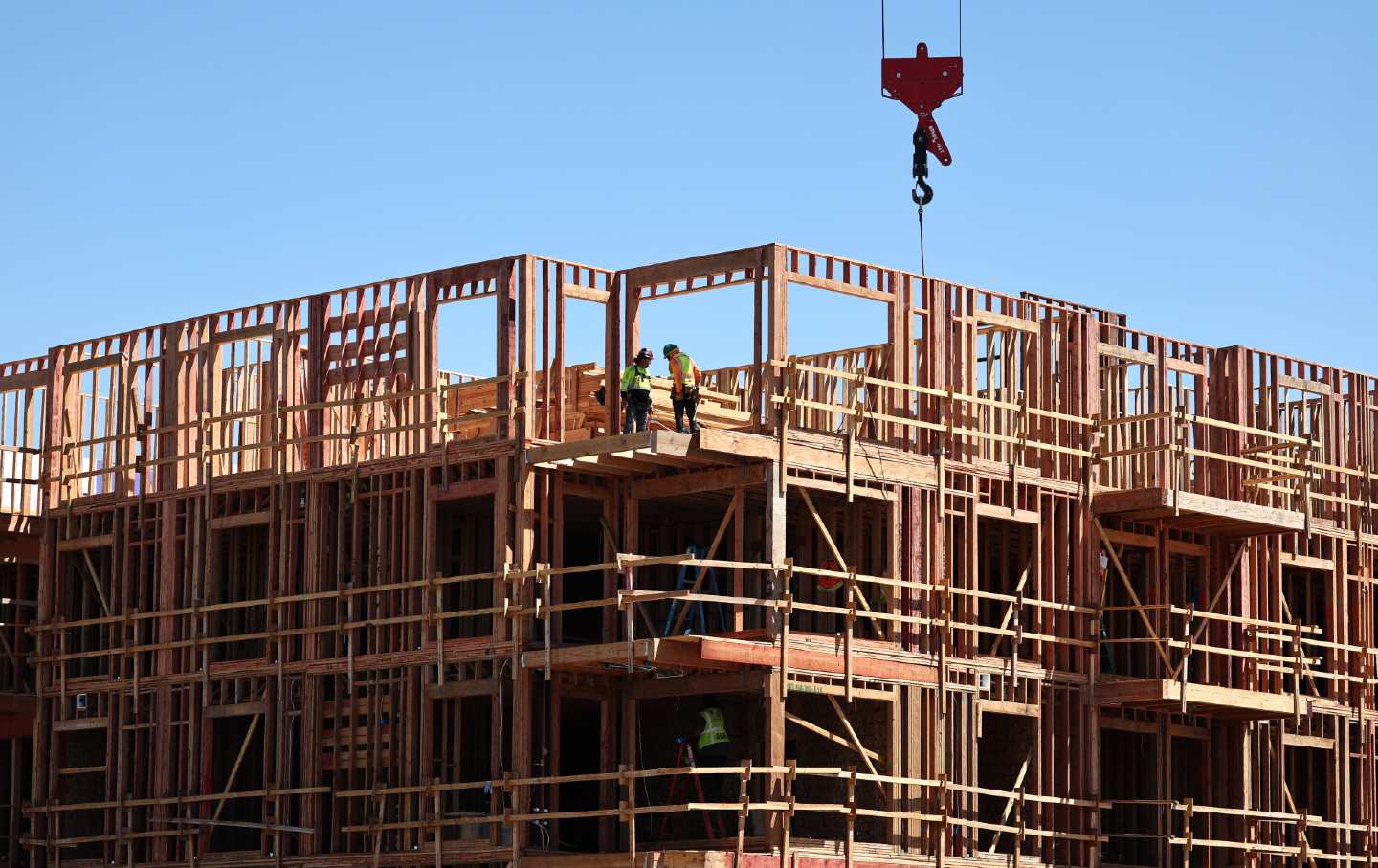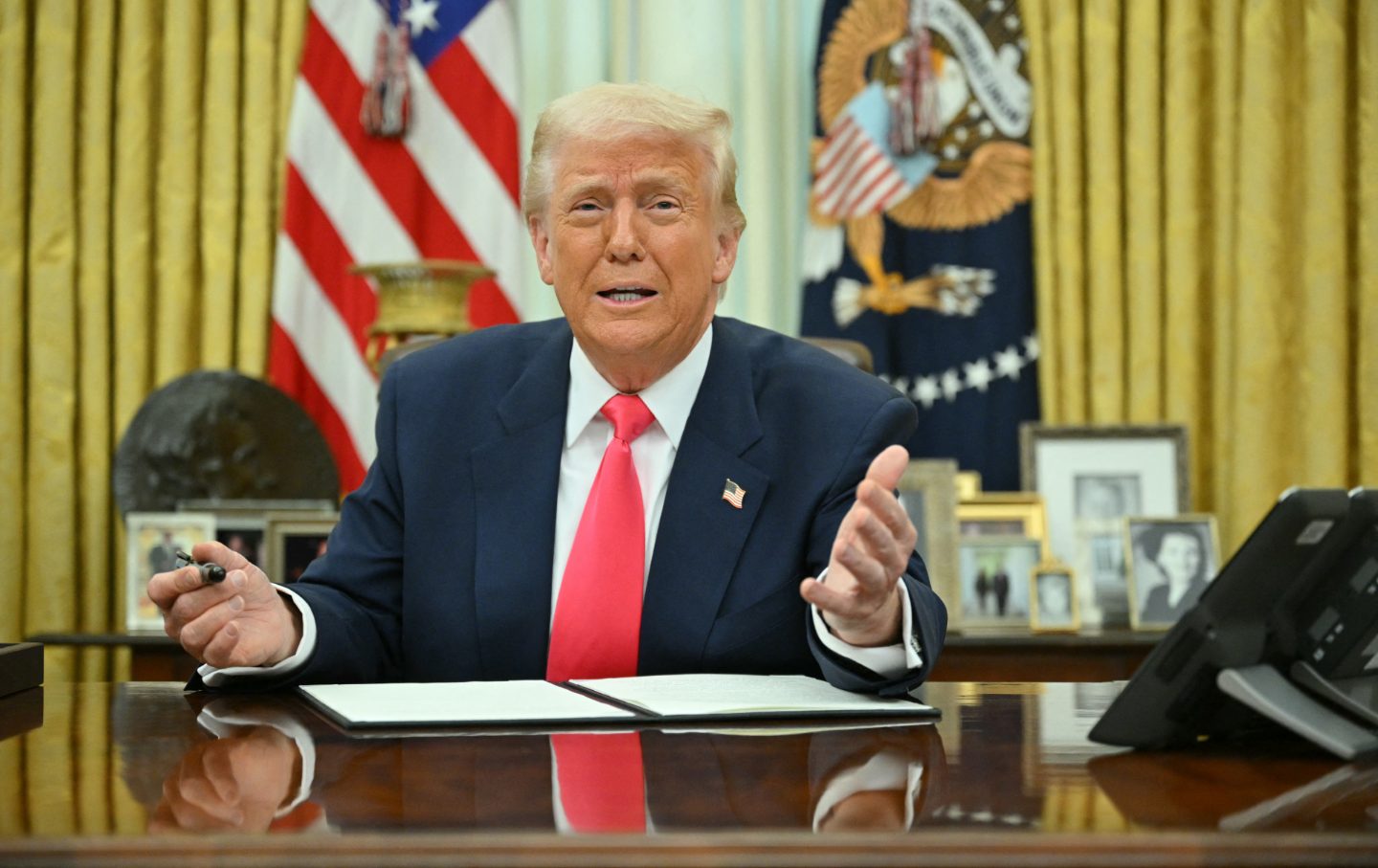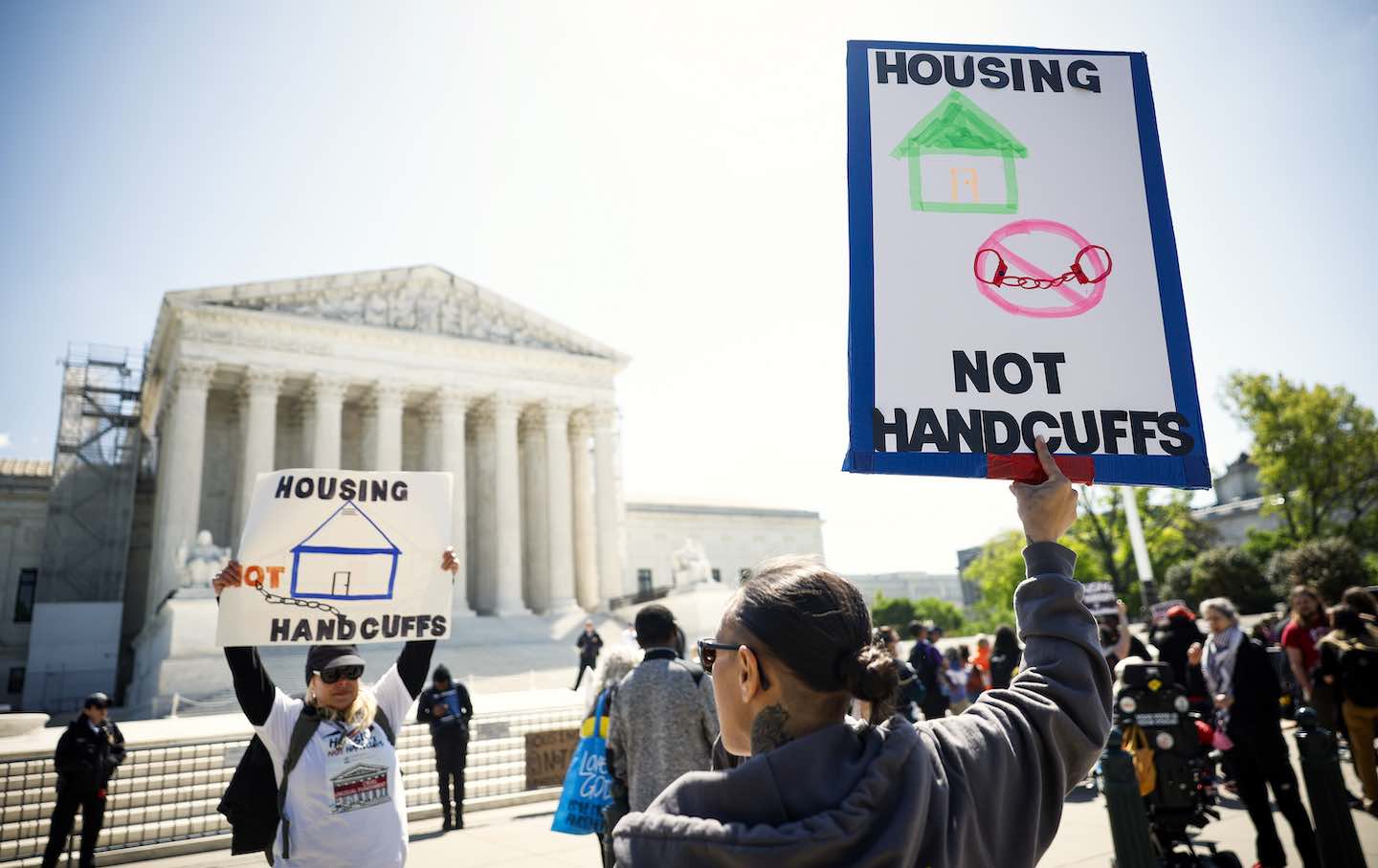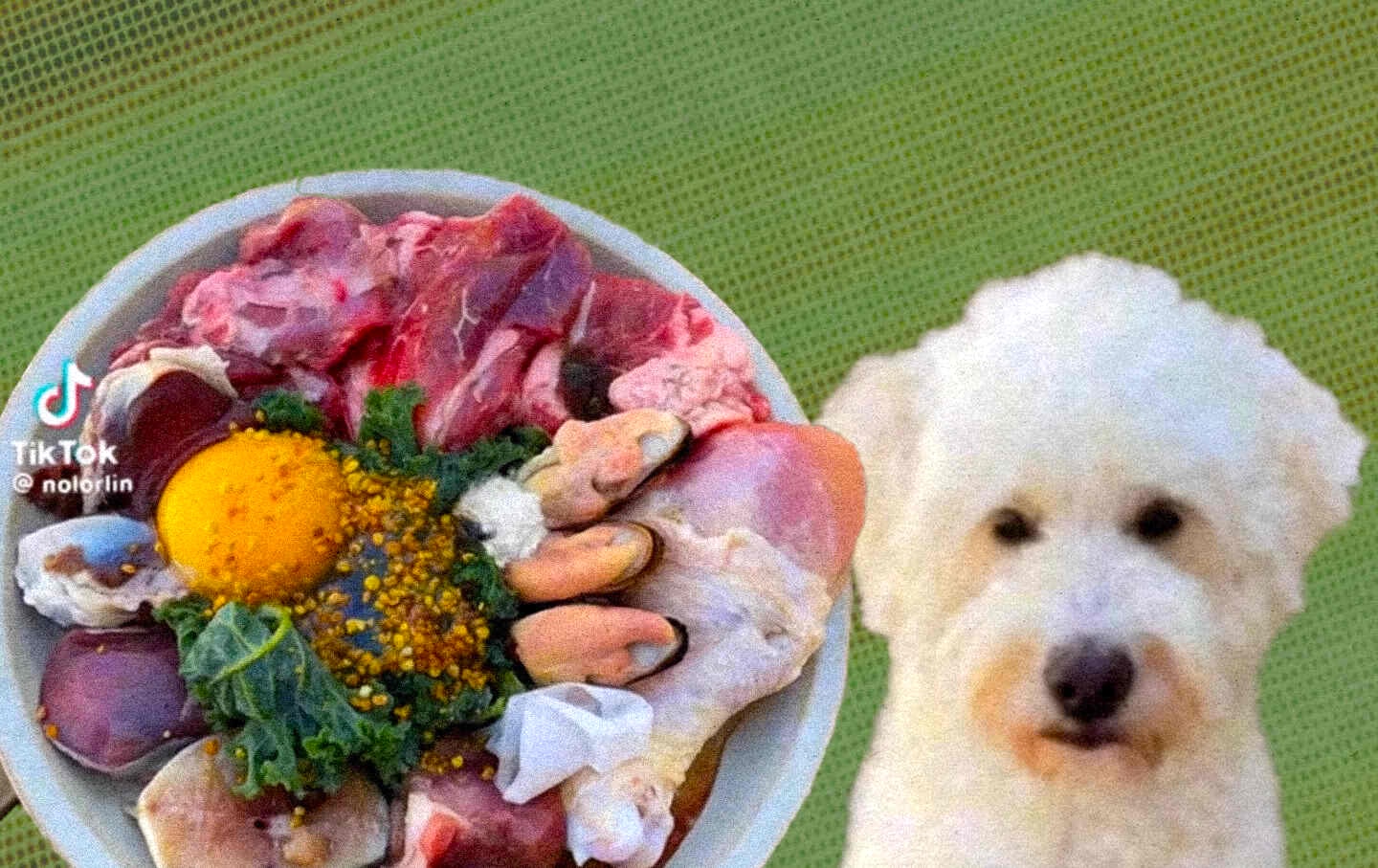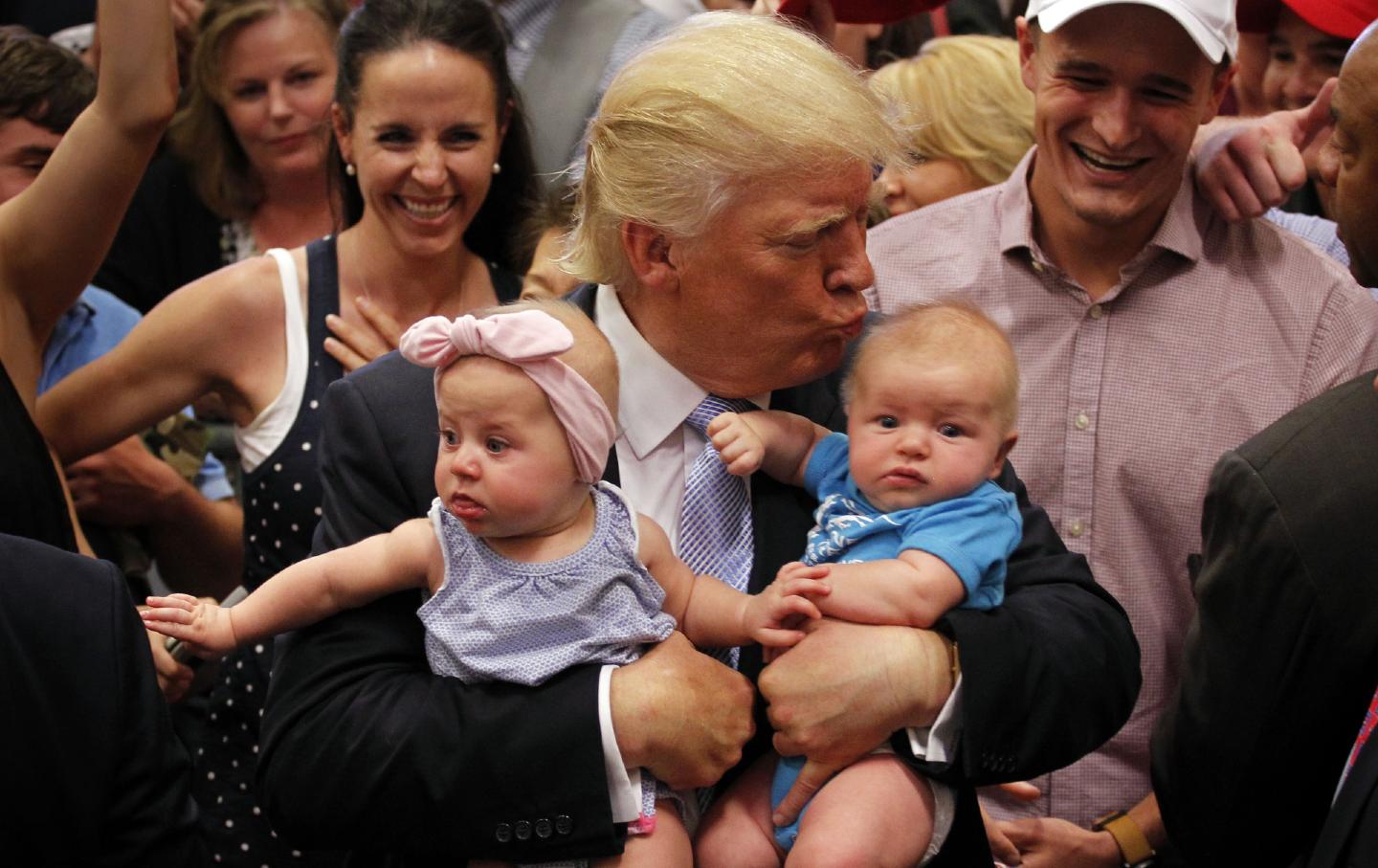Pope Francis, the First Global South Pontiff
His papacy set many new precedents for the church, and his successor will be chosen from a group that he himself quietly transformed.
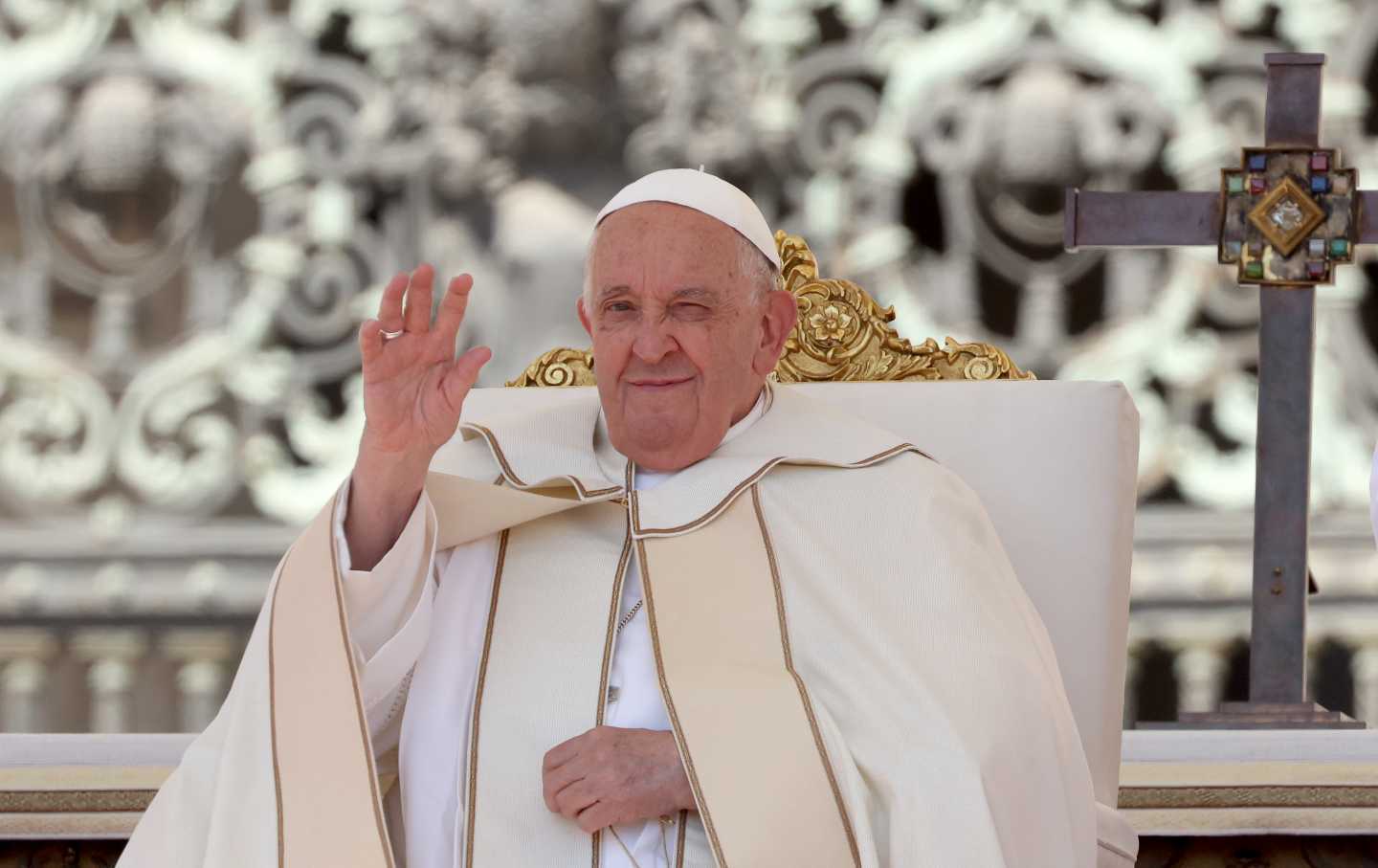
Like his namesake, Pope Francis focused on those on the margins.
(Franco Origlia / Getty)
On Easter Monday, following a heroic struggle to live since the onset of a medical crisis in February, Pope Francis, a pope of peace and poverty, died.
The day before, on Easter Sunday, the pope met with US Vice President JD Vance, a Catholic convert with whom he has clashed in recent months, especially over the rights and treatment of immigrants. Elected on March 13, 2013, Francis leaves behind a papal style defined by his proximity to people who are suffering. In his final Easter message, he called for peace in a number of conflicts around the world, reiterating a consistent demand for a ceasefire in Gaza. By phone, the pope spoke with people at the only Catholic parish in Gaza, Holy Family, where Palestinians have sheltered from Israeli bombs since 2023, nearly every night. His final call to the parish was on Holy Saturday, the day when Christians remember Jesus Christ’s descent into hell.
Already in 2014, Pope Francis suggested that he might only last two or three more years before going “off to the house of the Father.” Instead, he found himself leading the church through several annual (failed) international conferences on climate change, a pandemic, war in Ukraine, the rise of right-wing populism, and genocide in Gaza. A reliably newsworthy pontiff, Francis earned a reputation in particular as a public critic of a global economy that “kills,” as he put it starkly in one of his first papal publications, Evangelii Gaudium.
His loss is palpable as the world continues to fragment at a rapid pace, with the United States desperately trying to revive its imperial appetites and erratically dismantling its own federal government as other powers jockey for a new position in a malleable global order. As speculation about his successor grows, the world is wondering who will emerge in such a moment as the leader of the largest Christian community on earth.
Francis will be remembered as a pope of many firsts. After nearly 500 years, the Jesuits celebrated the first pope from their religious order. Long associated with education, the order committed itself to social justice in the latter half of the 20th century as Francis, then known as Jorge Bergoglio, came up in the priesthood. With the publication of Laudato Si’ 10 years ago, Francis provided the first papal encyclical to take the climate crisis as its main theme. It’s fitting that he is also the first pope to have taken the name of St. Francis of Assisi, another reformer with a heart for the poor and the good of creation.
Perhaps most importantly, however, hailing from Argentina, he was the first modern pope from a country outside of Europe, and the first ever from Latin America. He moved to Rome from a region that often found itself in conflict with Francis’s two papal predecessors, owing to its role as the birthplace of liberation theology, toward which the Vatican adopted a disciplinary attitude. And there’s a good chance he won’t be the last pope from the Global South. Over his tenure, Francis has accomplished a quiet geographical transformation of the most significant decision-making body in the Catholic Church: the College of Cardinals, the group of men responsible for deliberating about and choosing the next pope.
Pope Francis has packed the College of Cardinals, made up of 252 men (and yes, they are all men). Less than half of them, 135 in total, are currently under 80 years old and are therefore eligible to vote for the next pope. The others are able to participate in deliberations but not cast a vote. The most recent crop of cardinals were elevated as recently as December 8, and the majority of Pope Francis’s chosen cardinals are from outside of Europe. Eighty percent of those who vote for the pope will be Francis appointees.
Though the Catholic Church is famous for being slow to change, it is also famous for debates over tinkering with intricate bureaucratic measures, and the conclave is no different. Popes John Paul II and Benedict XVI both changed the way popes are elected. Currently, in a process unchanged by Pope Francis, a papal candidate needs two-thirds of the votes to be selected as pope, unless 33 consecutive votes fail to achieve that result, in which case the election goes to a run-off between the top two candidates. The process has been criticized by commentators like Jesuit priest Thomas Reese for opening the door to a polarizing election, rather than a process of careful and collective discernment.
Many of the cardinals elevated by Pope Francis are firsts for countries, dioceses, and communities. To name just a few, Bishop Toribio Ticona Porco in Bolivia became the first cardinal from an Indigenous people in Latin America, Archbishop Wilton Gregory became the first African American cardinal, Archbishop Anthony Poola became the first cardinal to come from the Dalit caste in India, and Archbishop Natalio Shomali Gharib is the first cardinal of Palestinian origin (presiding over Santiago, Chile).
Though the ratio is not perfect and Europe remains overrepresented, the shifting demographics of the College reflect the shifting demographics of the Catholic Church at large. In Europe, the numbers of Catholics are decreasing, while the faith is growing everywhere else. In Canada, Catholicism is growing not because of Canada-born converts but because of immigration from the Global South, filling pews that would otherwise be empty. An increasing majority of Catholics live outside the Western Hemisphere, although the allocation of the church’s personnel resources (namely, priests) is still weighted toward the Global North. By changing the demographics of those responsible for electing the next pope, Pope Francis has started what will surely be a long and arduous process of making the Catholic Church align institutionally with the geographical reality of its flock. Pope Francis is the first pope from the Global South; his successor will be the first pope chosen by a conclave whose majority is from outside of Europe.
Pope Francis has also elevated some of his own key sympathizers and collaborators, like fellow Jesuit Michael Czerny and, more recently, theologian and Dominican priest Timothy Radcliffe. It would be a mistake, however, to assume that the cardinal electors are all ideologically unified. Pope Francis’s approach to reform has been characterized by a commitment to dialogue and difference, to the frustration of both conservative and progressive factions within the church. In addition to disciplining certain conservative critics—most famously his excommunication of disgraced conspiracy theorist Archbishop Carlo Maria Viganò—he has also put the brakes on the deeper reforms of more progressive bishops, like those in Germany who have tried to push changes relating to women and same-sex unions. Regardless of whether Francis’s cardinals share his positions, the ideological trends of a conclave are complex. After all, it was a conclave with cardinals elevated by Popes John Paul II and Benedict XVI, often understood to be representative of a more conservative wing of the Catholic Church, that chose Bergoglio.
When it comes to stacking the next papal conclave that will be tasked with finding a leader who can continue to effectively navigate these ongoing disagreements, Francis has clearly favored a more geographically diverse College, and he has gone out of his way to find cardinals on the margins, but his agenda has found mixed reception among his brother bishops in the Global South.
Popular
“swipe left below to view more authors”Swipe →Take Africa, for example. Pope Francis has found strong allies on economic issues, like prominent prelate Cardinal Fridolin Ambongo of the Democratic Republic of the Congo, who has argued that the exploitative extraction of critical minerals in Africa is creating “modern martyrs.” Yet he also found strong opposition as he floated the possibility of priests blessing same-sex unions, a move that was strongly rejected by the African bishops, who released a collective statement saying matter-of-factly that there will be “no blessing for homosexual couples in all churches in Africa.”
Cardinal electors will undoubtedly discuss the divisions within the church as well as the wider world as they gather to determine who ought to be the next bishop of Rome. Despite his best efforts, he will leave his successor with a long list of projects.
Like his namesake, Pope Francis has taken on an ambitious agenda of reform, and also like St. Francis, he has had to learn the difficult lessons of institutionalizing the zeal behind that reform. Following Pope Benedict XVI’s surprising resignation from the papacy, Francis inherited a church facing multiple crises. In 2013, the moral scandal of systemic sexual abuse continued to weigh heavily on the reputation of the church, as it still does now.
But less headline-grabbing problems also permeated the church. The Vatican bank, an institution prone to scandal, has continued to be a source of embarrassment, like the drawn-out Vatican trial of 10 defendants, including a high-ranking cardinal, accused of a variety of charges related to a London real estate investment. Ideological differences in the church have grown, with flash points around the role of women, permission to hold Mass in Latin, and more, as Francis has tried with mixed success to pull the church out of the dividing narratives of the 20th century. At its ugliest, some of Francis’s staunchest critics, which include Catholic bishops, have argued that the pope is undermining the faith, an accusation that earned Joseph Strickland a removal from his post as bishop of Tyler, Texas, in 2023. But, contrary to the fantasies of the Catholic right, the pope has also earned criticism for his approach of providing more charitable interpretations of church teachings on things like women and sexuality or gender identity, what Catholic writer Kaya Oakes calls “popesplaining,” rather than opening up the possibility of changing them.
Francis has also tried to reckon with some of the most challenging and troubling legacies of the Catholic Church, including its role in colonialism. In a 2015 speech on a papal visit to Bolivia, the pope from Latin America asked for forgiveness for the complicity of the church in the colonization of the Americas, and especially for its abuses of Indigenous peoples. On the plane home from a sensitive visit to Canada, a country reeling from public awareness of brutal conditions at residential schools, most of which were run by Catholic religious orders, Francis used the word “genocide” to describe attempts to alienate Indigenous peoples from their languages, culture, and customs. Throughout his many visits as one of the most traveled popes in history, Francis routinely discussed the ongoing effects of neocolonialism and the exploitation of people and land in the Global South, chastising the Global North.
Here, too, however, reforms are not easy, and Francis has had to contend with a recalcitrant reactionary Catholicism, exemplified in a scene where a far-right Italian Catholic stole an Indigenous statue and threw it in the Tiber River in Rome during a Vatican meeting on Catholicism and the region of the Amazon. An institutional church that looks more like the people who belong to it will not be a smooth transition given centuries of colonial structures created and used by the Catholic Church to permeate the world and maintain a Eurocentric model of power. Francis’s papacy will not be enough to undo or dismantle those structures.
One of Francis’s most lasting contributions, designed in part to address these conflicts, will likely be his final large project, the Synod on Synodality. Though “synod” is usually a bureaucratic term reserved for meetings of bishops to discuss matters of doctrine, procedure, or approach, Francis retrieved its original meaning from the Greek syn (together) and hodos (journey or way), compounding to express the task of “walking together.” The Synod on Synodality has prioritized including a multitude of voices from outside the Catholic hierarchy, including unprecedented participation of lay people and women.
Described by papal biographer Austen Ivereigh as the “biggest consultation exercise in human history,” the three-year process involved canvassing opinions and reflections on the state of the Catholic Church in every corner of the world, a process warmly welcomed by some and ardently opposed by others, including in the Catholic hierarchy. After it wrapped up in Rome in late 2024, Francis forewent the typical papal privilege of preparing a document summarizing the end of a synod and interpreting its final results, instead allowing the collective document that emerged from discussions to stand on its own as authoritative, a frankly radical affirmation of a more deliberative church. (Although the process was not without its critics, who pointed out that pushing out exceptionally controversial issues like women’s ordination and the church’s teachings on LGBTQ+ people and deferring them to a future summit did not allow for a truly open and honest discussion.)
There is a folk saying in the Catholic Church that each pope corrects the errors of the last. This is a tempting intuition given the current state of global democracy, where far-right politics are gaining ground against liberals who have worn out their welcome or failed to cast a compelling vision.
But whoever occupies the chair of St. Peter next will be chosen by those in whom Francis has placed his trust. The conclave will be a test of Francis’s discernment more than a referendum on his approach, and while the results are hard to predict given the many unprecedented electors, it is difficult to imagine a conclave that results in a simple revenge of the right—however much traditionalists might hope for it or cynics might fear it.
The next pope, like Pope Francis, will inherit a church riddled with scandals, half-finished efforts, and divisions. Yet he will be chosen by a conclave that better reflects the population of Catholics around the world, a result that is at the heart of what Pope Francis—the first pope from the Global South, committed to walking together—sought to achieve.
Hold the powerful to account by supporting The Nation
The chaos and cruelty of the Trump administration reaches new lows each week.
Trump’s catastrophic “Liberation Day” has wreaked havoc on the world economy and set up yet another constitutional crisis at home. Plainclothes officers continue to abduct university students off the streets. So-called “enemy aliens” are flown abroad to a mega prison against the orders of the courts. And Signalgate promises to be the first of many incompetence scandals that expose the brutal violence at the core of the American empire.
At a time when elite universities, powerful law firms, and influential media outlets are capitulating to Trump’s intimidation, The Nation is more determined than ever before to hold the powerful to account.
In just the last month, we’ve published reporting on how Trump outsources his mass deportation agenda to other countries, exposed the administration’s appeal to obscure laws to carry out its repressive agenda, and amplified the voices of brave student activists targeted by universities.
We also continue to tell the stories of those who fight back against Trump and Musk, whether on the streets in growing protest movements, in town halls across the country, or in critical state elections—like Wisconsin’s recent state Supreme Court race—that provide a model for resisting Trumpism and prove that Musk can’t buy our democracy.
This is the journalism that matters in 2025. But we can’t do this without you. As a reader-supported publication, we rely on the support of generous donors. Please, help make our essential independent journalism possible with a donation today.
In solidarity,
The Editors
The Nation

